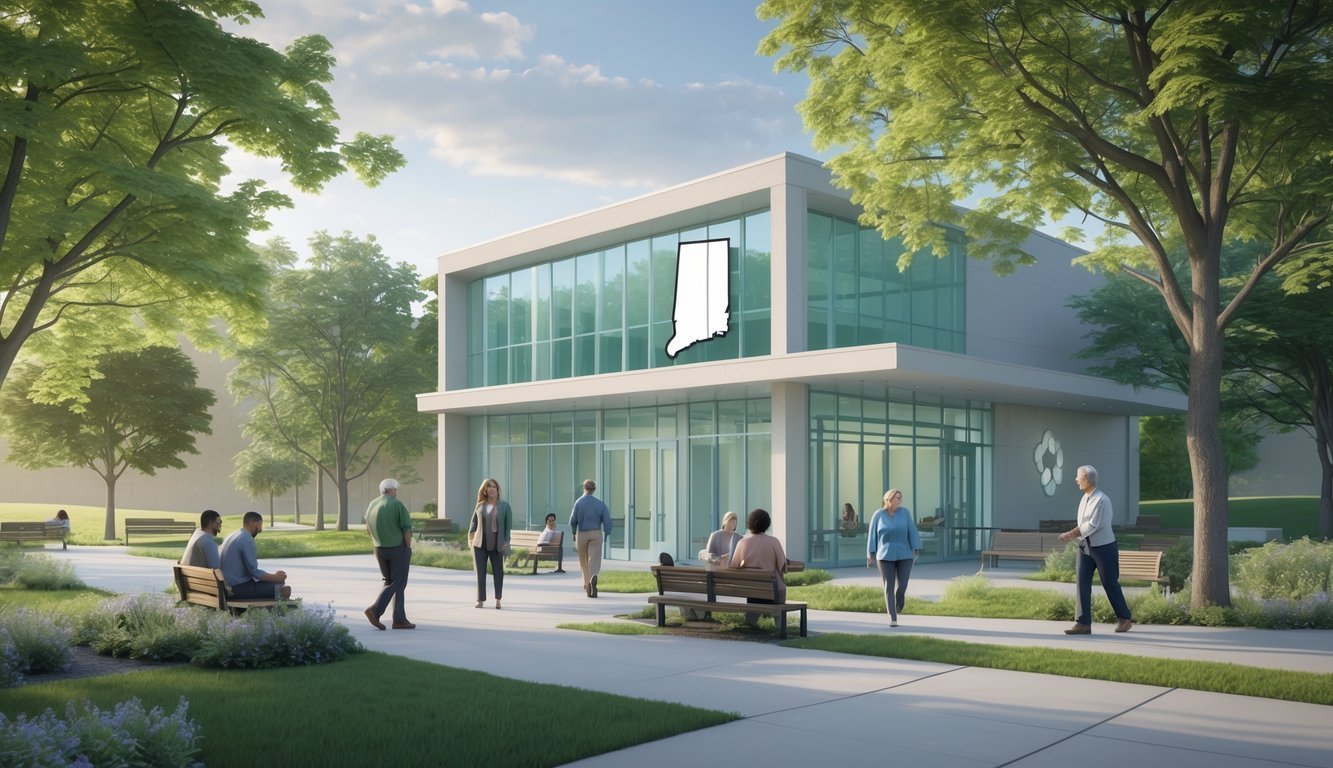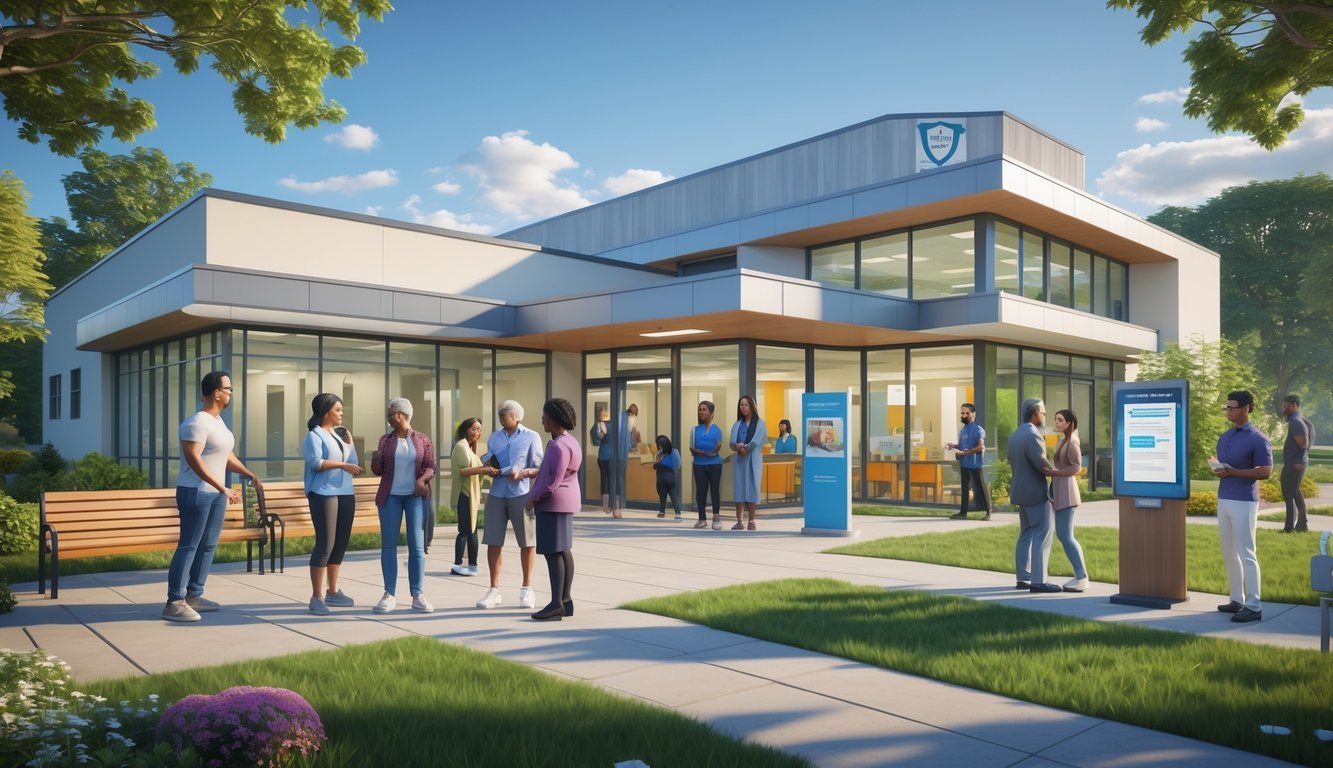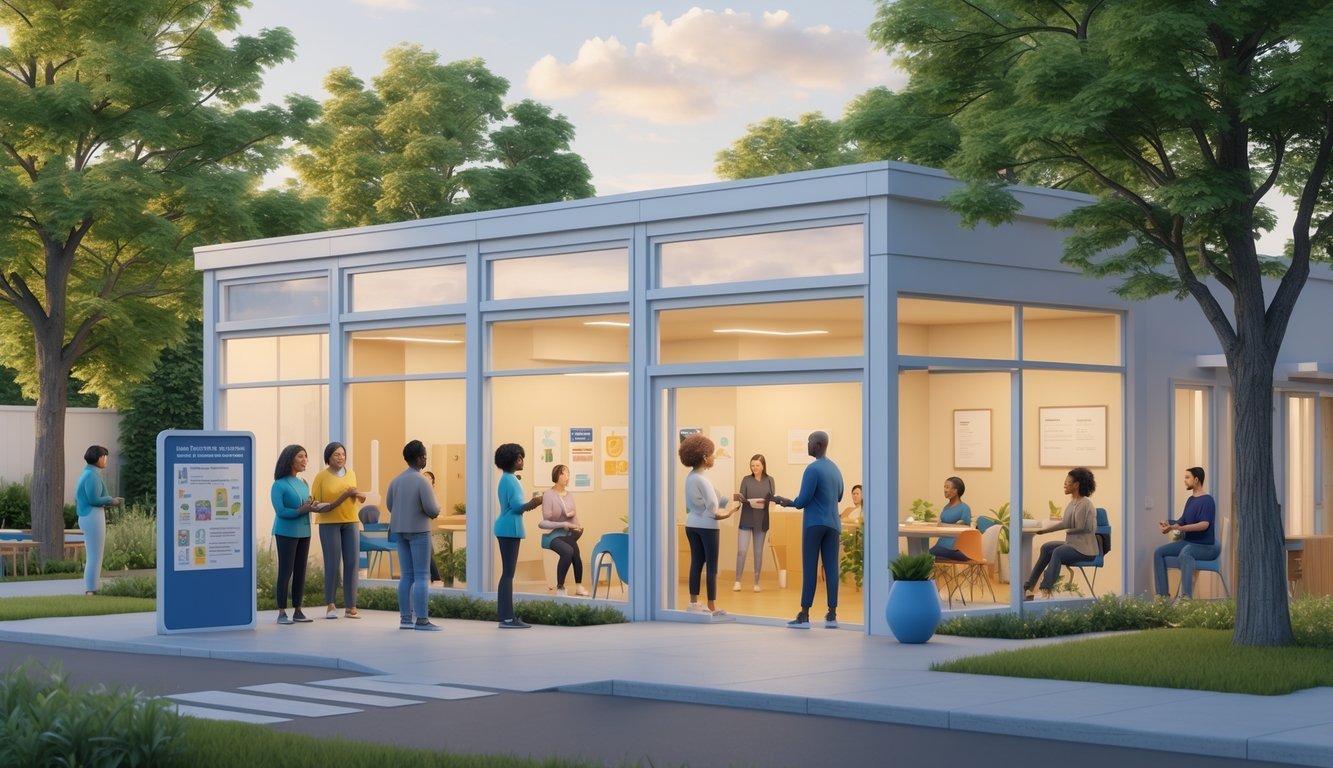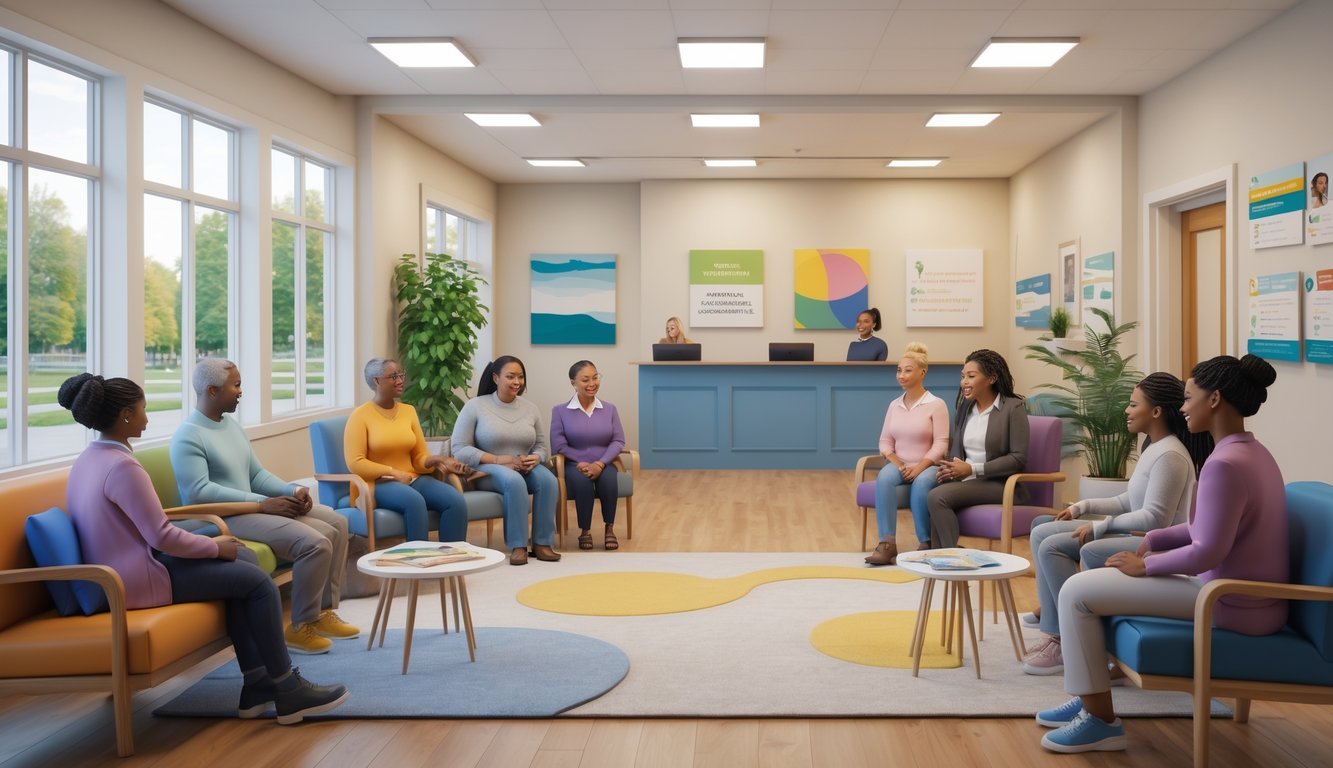PsychNewsDaily Publishers
100 Summit Drive
Burlington, MA, 01803
Telephone: (320) 349-2484
PsychNewsDaily Publishers
100 Summit Drive
Burlington, MA, 01803
Telephone: (320) 349-2484
Connecticut offers numerous no-cost mental health services, including crisis support, therapy, and psychiatric care, accessible through state agencies, community organizations, and educational institutions.

Getting mental health support shouldn’t depend on how much money you make. In Connecticut, you’ll find lots of free mental health services from state agencies, community groups, colleges, and hospitals. These places offer crisis help, counseling, therapy, and psychiatric care at no cost to people who live here.
You can reach out for free mental health support in Connecticut through programs like the Connecticut Mental Health Center, university counseling, state-funded community programs, and crisis services that don’t care about your financial situation. The Connecticut Department of Social Services runs many of these programs. The Connecticut Mental Health Center gives full psychiatric care to residents in certain areas.
If you’re facing a mental health crisis, want ongoing therapy, or just need some preventive care, knowing your options makes it easier to get help. Many programs let you walk in, offer 24/7 hotlines, and don’t ask for insurance or check your income.

Connecticut has a variety of no-cost mental health and behavioral health services. State programs, local centers, and schools offer everything from crisis help to regular therapy. Each one has its own rules and provider lists.
Free mental health care covers crisis help, emergency psychiatric care, and screenings. The Connecticut Mental Health Center offers free psychiatric services to people in Greater New Haven.
Crisis Services:
Ongoing Treatment Options:
UConn’s Psychological Services Clinic gives mental health care to people of all ages in eastern Connecticut. Trained students provide these services under professional supervision.
The 2-1-1 Connecticut helpline connects you to hundreds of health and human services. It’s free, private, and available any time in many languages.
Most crisis and emergency mental health services don’t set many requirements. CMHC won’t turn anyone away for screening or emergency care if you’re 18 or older, no matter your income, insurance, race, religion, or sexual orientation.
General Eligibility Rules:
Some programs focus on certain groups. College students can use campus health centers for free mental health care. UConn students can book mental health appointments through Student Health and Wellness.
Community mental health centers often use sliding fee scales. If you have a low income, you may get services for free.
Start with a call to 2-1-1 Connecticut for quick referrals to local providers. They’ll help you find the right mental health care close by.
Simple Steps to Find Help:
University clinics like UConn’s offer quality care while training new professionals. Faculty supervise all services.
You can double-check provider credentials at the Connecticut Department of Public Health website. Licensed professionals meet strict standards.
For urgent needs, go to the emergency room or call a crisis line. Hospitals can connect you with follow-up mental health support in your area.

You’ll find several types of free mental health services in Connecticut. Community centers, crisis programs, telehealth, and youth programs all play a role. These options cover everything from emergency help to regular therapy.
Community mental health centers give full psychiatric care to qualifying residents at no cost. The Connecticut Mental Health Center serves Greater New Haven through a Yale and state partnership.
Here’s what you’ll find at these centers:
You can get help even if you can’t pay. Centers don’t turn away anyone over 18 for screening or emergency care because of race, religion, or sexual orientation.
Most places use a Mobile Crisis Intervention and Evaluation Unit as the main way in. This team does full assessments and helps you connect to ongoing services.
Crisis teams give immediate help during mental health emergencies. Mobile teams show up in person and offer support right away.
Mobile Crisis Intervention units act as emergency entry points for most outpatient services. They handle phone support, mobile outreach, and quick psychiatric help when you need it.
Main crisis services:
Crisis teams work with ERs and police to de-escalate tough situations. They focus on getting you the right follow-up care instead of just sending you to the hospital.
Telehealth brings mental health care to you through virtual visits and online tools. Many providers in Connecticut now offer free telehealth for those who qualify.
You can set up virtual appointments for a range of mental health needs. UConn’s Student Health and Wellness lets you book online through their portal.
Telehealth makes things easier by:
Online counseling platforms give you chat support, video sessions, and digital resources. These options really help people who can’t travel or have mobility issues.
Youth mental health services focus on the needs of kids, teens, and families. Many programs work with schools and community groups to offer full support.
Connecticut’s Department of Social Services runs family support programs that include mental health help. They link up mental health care with housing, child support, and other services.
Youth programs usually offer:
College students get special services at campus counseling centers. The UConn Psychological Services Clinic helps clients of all ages while teaching future therapists.
Many youth programs adapt to fit each person’s needs and personality. This way, young people get care that suits them best.

Connecticut has several main organizations offering free mental health care. Nonprofits, federally funded centers, community programs, and government resources all pitch in.
Mental Health Connecticut is the state’s oldest and largest mental health nonprofit. MHC runs a free 24/7 helpline with trained counselors.
They also offer free support groups for depression, anxiety, and bipolar disorder. You’ll find both in-person and online groups throughout the week.
MHC’s RESPECT program focuses on youth mental health in schools. It brings free mental health education and early help to students and families statewide.
Free services include:
They also provide free screenings at Mental Health Awareness events. These screenings spot early signs and connect you to the right help.
FQHCs in Connecticut give free or low-cost mental health care based on your income. They get federal funds to serve people without insurance.
You can get counseling, therapy, and psychiatric care on a sliding scale. Many centers help you even if you can’t pay anything.
FQHC services:
Connecticut has over 20 FQHCs across the state. Each one offers care in multiple languages and serves all kinds of communities.
Many Connecticut nonprofits give free mental health support through community programs. Some focus on certain groups or mental health issues.
Faith-based groups also offer free counseling with trained pastoral counselors. Churches, synagogues, and mosques often run support groups for grief, addiction, and family struggles.
Common free services:
Nonprofits support substance use treatment with free 12-step programs, SMART Recovery, and other support groups all over Connecticut.
Connecticut’s Department of Mental Health and Addiction Services funds free crisis care everywhere in the state. Mobile crisis teams respond to emergencies any time, day or night.
Community colleges keep adding more mental health resources. Students get free, private counseling at all CT State locations.
State-funded services:
Local health departments also offer free screenings and referral services. They’ll help you find the right treatment based on what you need and where you live.
Getting connected to free mental health care means knowing what to do and how programs work. Each service has its own process, and understanding the steps helps you get help faster.
Most free services start with a screening or intake appointment. You’ll need to share basic info about your income, insurance, and mental health needs.
The Connecticut Mental Health Center takes walk-ins through their Mobile Crisis team. This is the main way to get outpatient care there.
Bring these documents:
Many places accept walk-ins for crisis situations. Some ask you to call ahead to book a spot.
Waitlists do happen. If you need urgent help, ask about emergency services while you wait.
Try to stick with one main provider or case manager. They’ll help you organize your care and connect you to other services.
Keep your appointments and let them know if you need to cancel. It shows respect and helps you keep your spot.
Ways to get the most out of free services:
College students can get full mental health care through campus wellness programs. These usually include counseling, crisis help, and wellness activities.
Write down your questions before appointments. Bring a notebook to keep track of important info and next steps.
A lot of free mental health programs also help with substance use problems. You can usually get support for both mental health and addiction in one place.
The Connecticut Mental Health Center offers services for people dealing with both mental illness and addictions. Their staff works with patients to find the recovery path that fits them.
Dual Diagnosis Services Include:
You don’t have to pick between mental health or substance use help. Many people struggle with both, and it just makes sense to treat both at the same time.
Crisis centers usually train their staff to handle substance use emergencies. They’re ready to give immediate help and can connect you with longer-term treatment.